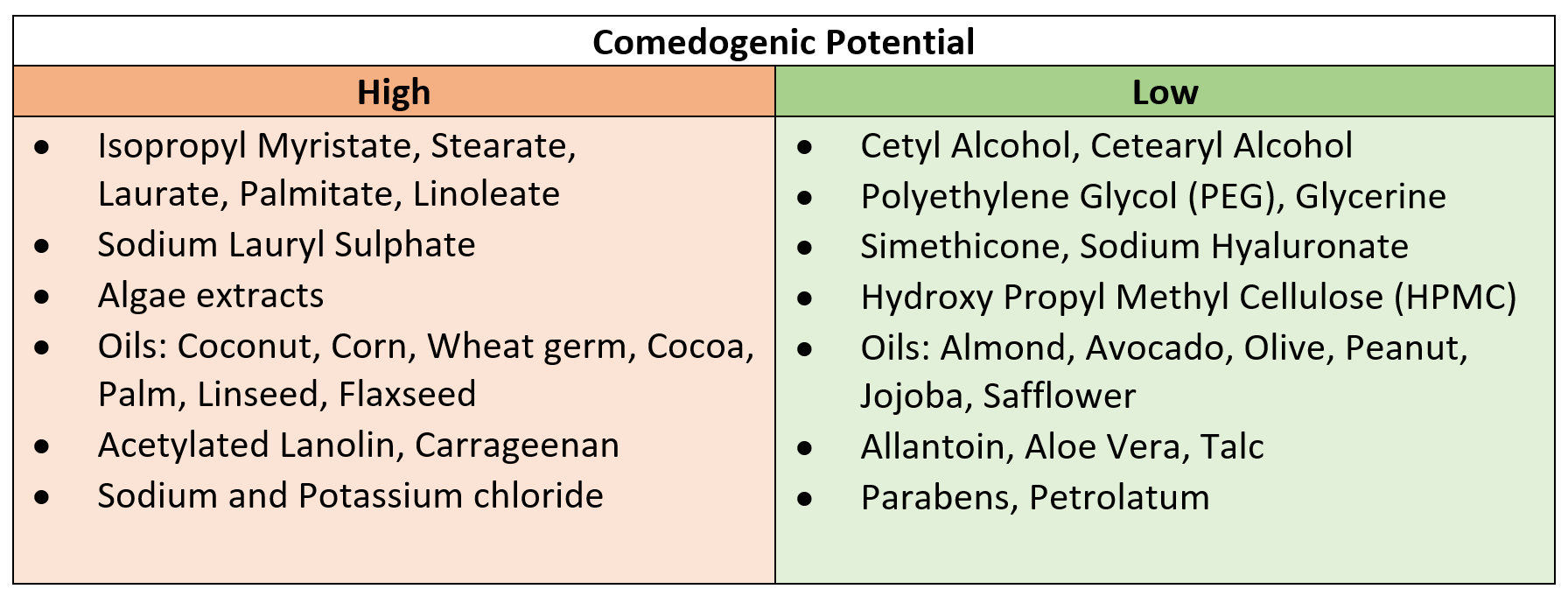Acne skin care is very important in people with a tendency to gets pimples/zits.
Acne results from the blockage of the pores of the skin due to excess oils-fats (sebum) and skin debris and the protein (keratin). These clogged pores are called ‘comedones’ (blackheads or whiteheads) and the subsequent inflammation, and infection causes the characteristic pimples or zits. These are most commonly seen on the face. Though medicines, both as skin application and pills are often prescribed for acne, it is equally important to step up personal skincare. If one has a tendency for developing pimples, the following points must be kept in mind while caring for the skin and also while choosing skin care products like face washes, creams, and cosmetics.
1. pH – This tells us the acidic or alkaline level (7 being neutral, while above and below being alkaline and acidic respectively). Our skin has a naturally acidic pH of around 5 to 5.5 which acts as a protective barrier to prevent skin infections, as well as acne. Most soaps are alkaline as they contain ‘hydroxides’ with fats and oils. So, people with acne-prone skin should avoid using soaps on their faces and instead use liquid face washes most of which have pH between 4.5-6.
2. Comedogenicity – This tells us the propensity of the skincare product to block pores and cause comedones, which is the first stage of acne. The table shows some common ingredients in skin-care products and their comedogenic potential. However individual skin response may vary in both time taken to manifest, and the number of comedones developed.

Products containing more of high comedogenicity substances should be evaluated for the comedogenicity of the finished combination product. Sometimes combining a high comedogenicity substance with a non-comedogenic one can help lower overall comedogenic potential. Therefore the final product should be certified overall as ‘low’ or ‘no’ comedogenicity after human skin testing.
Isopropyl forms of myristates (myristic acids), stearates (stearic acids), palmitates (palmitic acid), laurates (lauric acid) are most comedogenic, and so is SLS (sodium lauryl sulphate) often added as a foaming agent.
Though parabens, added as preservatives are not comedogenic, they have been seen to be associated with long term skin damage in some studies. Therefore now many ‘paraben-free’ skincare products are available.
3. Oil control and moisturization – Maintaining moisturization and softness of the skin, and also controlling the oiliness of skin at the same time are important attributes for skincare products for acne-prone skin. Many acne treatments especially of the retinoid class can cause a lot of skin dryness and irritation. Substances like cetyl alcohol and glycerin can moisturize without oiliness while zinc salts are known to control oil production.
4. Other beneficial substances – The presence of some of these substances in face washes and skin care products can be useful to prevent as well as control acne.
- Exfoliative agents like glycolic acid and lactic acid help remove dead skin cells. They unclog pores and also improve skin health and glow.
- Keratolytic agents like salicylic acid help break down the hard keratin protein of skin which plugs the skin pore to form comedones.
- Astringents like citrus fruit extracts, green tea extracts (catechin tannins), and rosewater, help to cleanse, unclog and tighten pores, as well as control oiliness.
- Nourishing and soothing agents like allantoin, aloe vera, beta carotenes, niacinamide (vitamin B3), vitamin E and vitamin C (ascorbate) are non-comedogenic, non-irritant, and anti-inflammatory, therefore beneficial for acne, and generally for the skin.
5. Diet and Lifestyle – The following points of care are recommended for general health, weight control and for acne-prone skin.
- A nutritious diet low on refined carbs (maida), sugar products and fats-oils, and high on whole grains, fruits, vegetables, and yogurt (curd).
- Good hydration with 10-12 glasses of water daily, and regular exposure to fresh air.
- At least half-hour of physical exercise like brisk walking, jogging, cycling, aerobics, yoga or aerobics minimum 4-5 times/week
- 8 hours of continuous sleep on most nights
- Stress management
Skin Product Comedogenic ratings.
Also Read –

